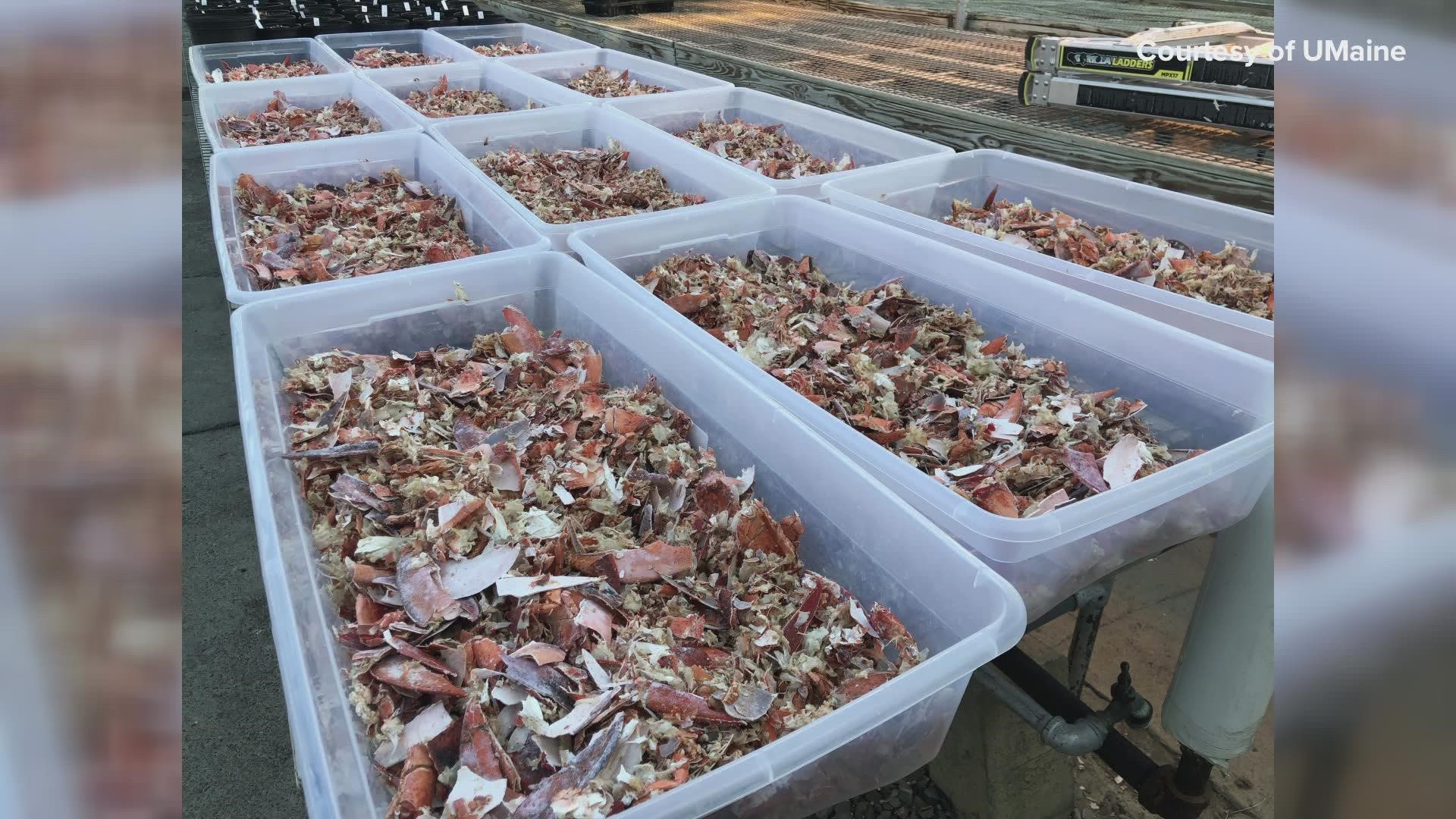ORONO, Maine — Maine is known for potatoes and lobsters.
To bridge the gap between the two industries, researchers at The University of Maine are looking for new ways to repurpose discarded lobster shells and studying a possible link between those carcasses and keeping potato fields healthy.
The study is branching off a collaboration funded by the U.S. Department of Agriculture National Institute of Food and Agriculture and led by the University of Minnesota.
"The most interesting thing is the waste stream. There's a lot of opportunities," researcher and graduate student Katie Ashley said.
"For the potato industry, it's a great opportunity to have a locally sourced fertilizer that could have disease-suppressive properties. So, it's really a win-win," she added.
Researchers have been drying and grinding up lobster shells and adding them to the soil of potato plants to see if there are any benefits.
According to Ashley, the special ingredient is chitin. Found both in lobster shells and in potato pathogens, she said introducing the shells to the soil may act as a sort of probiotic for the plant.
"Fungi make overwintering structures, these rigid structures to protect themselves from winter conditions out of chitin as well. So, it's this kind of molecule that's everywhere," Ashley said.
The team hopes to use their data to support growth for other use. UMaine senior and researcher on the project Ross Sousa said similar tests for other plants have found pretty successful results in the past.
"There has been other studies and other crops, whether crab shell meal or lobster shell meat, that was done on things like broccoli or cauliflower," Sousa said.
"While potatoes are what we're working with, there are certainly opportunity for many others. I mean, almost every plant has some sort of pathogen that's soil-borne," Ashley said.
The two have recently finished a 90-day preliminary trial in the university's greenhouses. According to the university, preliminary results have shown a 200 percent growth aboveground as well for the plants.
The two plan to continue their research throughout the rest of the upcoming year.

